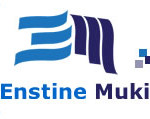Not all websites are created equal, and some are more visible than others. If you’re looking for ways to let search engines and people know you exist, you’re in the right place. These simple eight tips will help you effectively increase your website visibility and start seeing results.
Keep in mind that success doesn’t happen overnight, and you’ll have to be persistent in your efforts.
1. It All Starts With SEO
If you are unfamiliar with the term, SEO stands for Search Engine Optimization. It is the process of optimizing your website, so it appears in search results relevant for your niche. SEO is an art in itself, and there are professionals who can take care of that for you through managed SEO services. They can make sure your content complies with Google’s guidelines in order to rank high on the SERPs.
Before turning to SEO services, however, there is still a lot you can do on your own to improve your website visibility. For example, you can work to get other credible websites to link to you (a.k.a. generate inbound links), use relevant keywords in your content, optimize your images, and make your website mobile-friendly.
2. Think about the UX
Website visibility doesn’t rely on search engines alone. It also depends on humans and how they interact with your site. People love intuitive websites where it’s easy to find the information they need with just a few clicks. Cluttered home pages with hundreds of links and dropdowns are confusing and can make them leave your website in seconds.
This process is called a bounce rate (or how quickly users leave your page without taking action). This is directly linked to first-page ranking on Google. By creating a user-friendly design, you’ll be encouraging people to stay longer and convert.
3. Choose Function Over Beauty
We are visual creatures, but that doesn’t mean you have to add all sorts of design elements to make your website extra flashy. The few people who endure this needlessly complex design probably won’t recommend your website or convert.
You need to optimize your JavaScript code, remove unused features and plugins to minimize HTTPS requests. This will not only improve the user experience, but it will also make your pages load faster, which is a crucial ranking factor that directly affects your website visibility.
4. Focus on Page Speed
Google has made it very clear that the faster a page loads, the better it ranks in search results. A quick use of Google’s Page Speed Insights tool can help you check how your website is doing. The report will show you a checklist of things you can improve to speed up your website’s loading times.
In addition to that, make sure to compress the image and video file sizes on your pages, as well as to avoid hefty graphics if they aren’t beneficial to your content. Page speed is also defined by your hosting provider, so make sure to choose or switch to a faster one.
5. Target the Right Keywords
Keyword-rich content is an integral part of helping your website rank better. You need to perform keyword research to find the words or phrases people are using to search for services or products like yours. The two major metrics in choosing the keywords to include in your content are:
- The volume of monthly searches
- The difficulty to rank for each keyword (this is based on the number of high-authority sites that already rank well for those keywords)
This will help you find keywords that are popular enough yet relatively easy to increase rank. With the help of tools, you can get detailed information, including competitors’ keywords, content gaps, and other metrics.
6. Get External Links
Also known as inbound links, these happen when another website is referring you in their content with a link. When those “references” come from credible and high-authority websites, this sends a signal to search engines that you, too, are trustworthy. This process is called link building, and it also includes the pages you link to: either to external sources (or outbound links) or your own web pages (internal links).
The trick is to create original, quality content that people want to read and share. Stay away from spamming and the so-called black-hat practices because cheating the system can easily get you penalized and/or suspended by search engines.
7. Update Your Website Often
Search engines like Google often change their algorithm and the way they rank content. By updating your website regularly, you will be prompting Googlebot to come back to your pages and re-crawl and re-categorize them based on the latest algorithm.
A great way to keep your website content fresh and exciting is to have an active blog. You can share industry news and articles, whitepapers, guides, infographics, and other formats relevant to your niche. This will help you rank for more keywords and significantly increase your website visibility.
8. Get Social & Drive More Website Traffic
Although there isn’t a direct connection between social media and SEO, being active on Facebook, Instagram, Twitter, and other platforms relevant to your industry is a must. Your posts can improve and increase:
- Content distribution
- Brand recognition
- Brand reputation
- Organic traffic to your website
- The lifespan of your blog posts
The likes, comments, and shares you get matter more than you know. The more shared you are, the better you rank, and the more visible your brand becomes.
The Bottom Line
The secret to website visibility is consistency. To improve your rankings in search results, you need to focus on several key areas:
- Create quality shareable content using beneficial keywords and update it regularly
- Keep the design functional and free of unnecessary scripts that delay page loading times
- Make sure your website is mobile and user-friendly
- Optimize page speed
- Get brand mentions and links from other websites through website content and social media
If you continue to work on these points, you will gradually begin to see improvements. You can also hire web design companies to help you out. Good luck!

